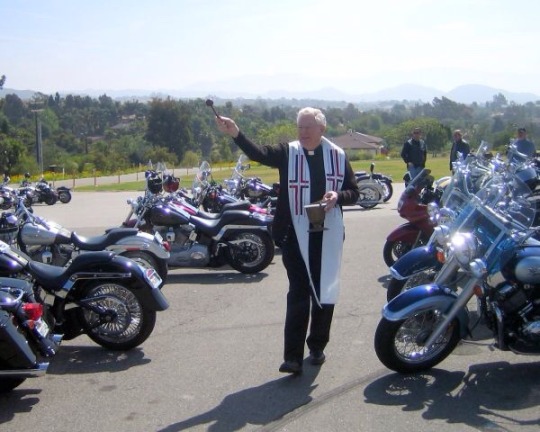Don't wanna be here? Send us removal request.
Text
Annotated Bibliography
DeWitt, David. “How Does Text Neck Cause Pain?” Spine-health, 26 Oct. 2018, www.spine-health.com/conditions/neck-pain/how-does-text-neck-cause-pain.
Dr. David DeWitt writes this article explaining what “text neck” is, how it manifests in the body and the negative consequences technology such as smartphones is having on our collective health. DeWitt stresses that the major cause of this neck injury is due to the weight of the head being tilted down at an unnatural angle. This angle “places about 50 to 60 pounds of force on the neck” which the body, particularly the neck and the back, is not designed for. Dr. DeWitt stresses that we have yet to see the long term effects that smartphones will have on our bodies and suggest limiting screen time as well as holding devices at a more natural eye level. This source is helpful to my paper as it highlights the new complications brought on by humanity’s perpetually intertwining relationship with technology and shows how health can be negatively affected.
“GOP Rep on Trump Jr.-Ocasio-Cortez Twitter Feud: 'Social Media Is Making Us All Stupid.’” Fox News, 10 Dec. 2018, www.insider.foxnews.com/2018/12/10/donald-trump-jr-and-alexandria-ocasio-cortez-spar-social-media-outnumbered-reacts.
In Fox News’ segment “Outnumbered,” co-hosts ask republican Wisconsin Representative Mike Gallagher his thoughts on a Twitter feud between Donald Trump Jr. and Alexandria Ocasio Cortez. Rep. Gallagher response is that social media is corrupting our collective intelligence. This source is important because it is from a right-leaning site, Fox News, and shares the viewpoint of social media from an actively serving Republican official. As a member of the GOP, Gallagher’s opinion depicts a growing distaste for social media that crosses all political lines. This provides supporting evidence that the majority of people see social media as dangerous while also highlighting the hypocritical nature of criticizing social media yet still engaging in it.
Hains, Tim. “Former Facebook Exec: Social Media Is Ripping Our Social Fabric Apart.” RealClearPolitics, 11 Dec. 2017, www.realclearpolitics.com/video/2017/12/11/fmr_facebook_exec_social_media_is_ripping_our_social_fabric_apart.html.
Former Facebook executive Chamath Palihapitiya does not hold back during an interview at Stanford University. Palihapitiya gives a comprehensive view of Facebook’s inner workings as well as a cryptic warning about engaging with the platform. He urges current society to shun away from social media and to wake up and fight back before companies like Facebook become too large and powerful for anyone to stop. He discusses the cognitive mechanisms that Facebook interface designers use to exploit and create addiction in its users. This source was the original catalyst for choosing the topic for this paper and offers the strongest evidence from a first-hand source.
Jantz, Gregory. “Screen Time-Down Time.” The Huffington Post, 24 Nov. 2017, www.huffpost.com/entry/screen-time-down-time_b_5a1841b5e4b068a3ca6df799.
Dr. Gregory Jantz investigates the relationship modern teenagers experience with technology and social media. Jantz concludes there is a need to worry as teenagers are becoming increasingly more isolated. This isolation leads to a lack of face-to-face experience, something that Jantz thinks is crucial to a functioning society. The article includes data from The Association of Psychological Science and the Journal of the American Medical Association and appears fairly unbiased. This source plays an important role in the paper because it provides insight into American youth which helps picture what the future may look like. An interview with an eleven-year-old girl is included and sheds light on the “new normal” of teenage society.
“Most Popular Social Networks Worldwide as of April 2019, Ranked by Number of Active Users.”Statistic, www.statista.com/statistics/272014/global-social-networks-ranked-by-number-of-users. Accessed 25 April 2019.
Statista is an online “provider of market and consumer data” that offers statistics on a wide array of concepts. While most sets of statistical data need to be bought and paid for, some of the more common sets, like this one about social media users, are free. Statista is an important source to include in this paper because it offers cold hard facts that are hard to refute. These facts help give context and understanding of how large these social media companies have become and how many of us are using them. The data from this site is impactful because it is somewhat surprising.
Petter, Olivia. “Prince Harry Wants Fortnite to Be Banned.” The Independent, 4 April 2019, www.independent.co.uk/life-style/prince-harry-meghan-markle-social-media-royal-baby-instagram-a8854041.html.
Olivia Petter writes an article covering a recent public discussion Prince Harry conducted on children’s mental health. Prince Harry is an important public figure for Britain and he fears video games, social media, and technology, in general, is dangerous for his country’s youth. He points to the addictive nature of these platforms while adding that they are more dangerous than drugs and alcohol because they are normalized in society. This source yet again shows how most people, even those in different countries, agree that social media is dangerous. It also again highlights the hypocritical nature also shown by Rep. Mike Gallagher. In the same week that Prince Harry warns of social media and the danger of how normalized it has become, a verified Instagram account was made on his behalf.
“Trump: I Doubt I'd Be Here Without Social Media.” Fox News, 22 Oct. 2017, www.insider.foxnews.com/2017/10/22/trump-i-wouldnt-be-here-without-social-media.
This Fox News source examines Donald Trump and the successful use of social media in his campaign to become President. Trump himself doubts that he would have been elected had it not been for social media. This source is impactful because it shows just how powerful these platforms can be. It is interesting to include because of the current political atmosphere. Trump has been a very polarizing figure and many are starting to call for his impeachment over Russian involvement through technology. This proves claims that technology should be used responsibly by showing that its negative consequences can affect our everyday lives.
University of Pennsylvania. "Social Media Use Increases Depression and Loneliness, Study Finds."ScienceDaily, 8 November 2018, www.sciencedaily.com/releases/2018/11/181108164316.htm.
The University of Pennsylvania has released some of the first official results from experiments about the relation of technology to human well-being. This source is very important because it is science and unlike opinions, science is not biased. Due to the relative newness of social media, not enough experiments have been completed and the long-term outcomes have all been theories. This experiment, however, supports all previous claims that social media is detrimental to society’s well-being by showing that a link exists between decreased social media use and decreased feelings of depression and isolation. Its inclusion is helpful is showing that all the fuss being made about social media is just.
Vedantem, Shankar. “Why Social Media Isn’t Always Very Social.” National Public Radio, 2 May 2017, www.npr.org/2017/05/02/526514168/why-social-media-isnt-always-very-social.
Shankar Vedantem conducts comprehensive interviews concerning social media for the “Morning Edition” segment on National Public Radio. He speaks with a normal, everyday woman that we all can relate to her experience with Facebook. Vedantem points out that the more she used it, the more isolated and depressed she became. For the segment, Vedantem also interviews Ohad Barzilay and Barbara Kahn, both established professors of technology and marketing, respectively. They provide valuable insight into the comparative nature of social media and how this comparison makes one feel bad about themselves. The whole interview is fairly unbiased as it is mostly just people and professionals sharing their own experiences and findings.
1 note
·
View note
Text
Breaking the Addiction to Social Media

Ok, so I have posted a lot about social media addiction. I’ve discussed the cycle of addictive behavior and those most at risk of its negative effects. I also previously mentioned that I am trying to break my own addiction to social media. You may be wondering how I plan to tackle such a feat and if there are any tips for breaking the cycle yourself. Well you are in luck because I read a lot about this stuff and I will tell you!
I know how hard it can be to set strict limits for yourself so having some awareness helps create motivation. Personally, knowing that I’m being played by social media companies is a powerful motivator. I find it insulting these companies see me only as a target they hope to acquire. Recognizing that these platforms have been specifically designed to prey on our mental facilities and create addiction is upsetting. Going even further, realizing that social media addiction can create serious problems for one’s well-being such as insomnia and increased feelings of loneliness and depression is the final straw. I take my health seriously and anything (or company) that actively disregards my well-being should be considered dangerous.
For those who cannot see themselves 100% refraining from all social media (like me,) there is still hope. There are positive aspects of social media and in order to properly enjoy them, I would encourage everyone to make a mindful decision to use responsibly. During my research I found that most experts recommend limiting your time on social media to around 30-40 minutes per day. Instagram and Facebook have both introduced features that allow you to set a daily time limit and receive a notice when the time limit has been reached. So far, I have found this feature very helpful.
More suggestions:
Be mindful about when you use social media. First thing in the morning can set a negative tone for the day while accessing it later in the day can be used as a reward for accomplishing daily tasks.
Don’t mindlessly scroll when you are bored. It helps to have a purpose when checking your social media.
Occupy yourself with other hobbies such as hiking or reading instead of wasting time comparing your life to others.
Make it harder to check your social media by logging out in between sessions.
Practice face-to-face interactions or even calling someone on the phone instead of communicating through social media.
Don’t get discouraged if your first attempts fail, regroup and remember your motivation for breaking your addiction in the first place.


These are only a few suggestions and there are more out there. Find what works for you and try different approaches. Please leave any comments or tips about breaking addictive cycles and know that we are all in this together! Peace and love, my internet friends.
Helpful links:
https://www.bustle.com/articles/144893-7-ways-to-stop-your-social-media-addiction
https://www.forbes.com/sites/forbescoachescouncil/2018/05/02/five-steps-to-break-your-social-media-addiction/#62da2e4838be
0 notes
Text
The Internet, Social Media and Me
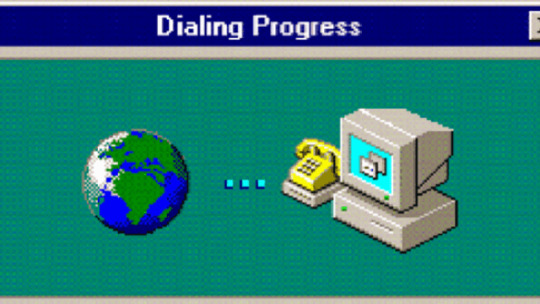
As some of you may know, I am a Gen X-er, baby! I remember life before the internet took over. I didn’t have a cell phone until I was in like, 10th grade and even then I had to share it with my dad so nobody would ever call because he usually answered. I remember having to unplug the phone line and plug the cord into the computer for dial-up internet which now, seems almost prehistoric. I signed up for MySpace and Facebook during my second year of college. Even after we made accounts, my friends and I had no idea what “social media” was and ended up posting the weirdest, most random things. That was an experimental time for social media, the wild west for online content. Now it seems everyone has some sort of social media account. My mom is now on Facebook! No thanks.
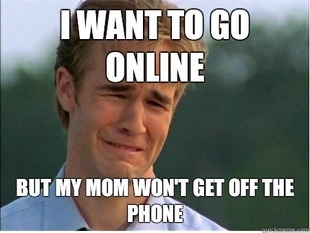
Why am I spilling all of my sweet Gen X memories of technology? Because I’m trying to give context for how influential smartphones and social media have become for the generations after me. My little sister (6 years younger than me) had her own personal cell phone in elementary school. She and all her friends had Facebook during those already painful and awkward teenage years. Sometimes I try to imagine what it would be like to grow up with social media, iPhones and tablets but I have a hard time grasping how impactful that would be during such a pivotal time.
During my research about technology and social media, I encountered some interesting facts about America’s youth:
The average age of when a child receives a smartphone is just over 10 years old
92% of teens access the internet on a daily basis
69% of internet media is accessed on smartphones
71% of Instagram accounts belong to millennials (or younger)
27% of surveyed teens feel bullying and rumor spreading is the most negative effect of social media
24% of surveyed teens feel that social media has had a negative effect on their lives
I’m not going to lie, high school wasn’t the easiest for me and I made a concentrated effort to avoid being bullied but what these statistics suggest is that it is far harder to be a modern teenager than it was when I was growing up. It is worrying that close to ¼ of American teenagers have had negative experiences via social media because being a teenager is already hard enough!
This leads me to ask you, dear reader, about your experiences. Did any of you grow up with a smartphone and social media? If so, what was that like? Have any of you had any negative experiences while using social media? Do you think children and teenagers should be careful while using social media?
0 notes
Text
Social Media Addiction!
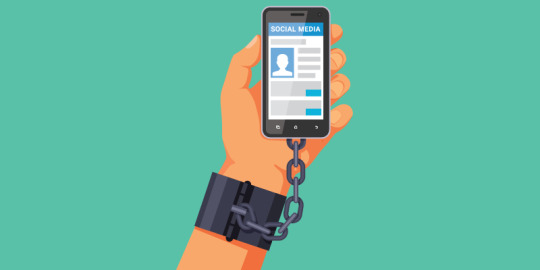
Hey Y'all!
Here it is, my first textual blog post! As you can see from my previous posts, in the past I used this blog as a place to post weird pictures. Feel free to scroll back and take a look but more importantly, lets talk about social media itself. As you may have heard or experienced, social media addiction is very real! I myself am addicted (Instagram mostly) but after doing more research on the subject, I have decided to try to break free from my addiction! Realizing that social media platforms are designed to be addicting is upsetting. It makes me feel like I am nothing but a target for these big tech companies to manipulate. I don’t like that!
A real turning point for me was when I watched an interview with Chamath Palihapitiya. Palihapitiya worked as a top executive at Facebook from 2007-2011. When he left, he held the title of Vice President of User Growth so I feel like he’d know a thing or two about the tactics the company uses to draw in and keep users. In the interview, Palihapitiya straight up tells Facebook users to flee from the platform and further urges people to push back before “the beast” gets too powerful. This guy, who has first-hand knowledge of how Facebook has been designed to be addicting, doesn’t let his children use any form of social media. That, to me, is very telling.
From a psychological standpoint, social media companies have designed triggers such as pokes and likes to release dopamine in your brain which makes you feel good about yourself. This quick shot of dopamine soon dissipates and then your brain is left wanting more. If the same action is repeated enough the brain will develop a pattern and become addicted. Cocaine actually works in the same way. Once your brain has established what Palihapitiya calls “short-term dopamine-driven feedback loops,” it has become addicted and can alter one’s behavior. It’s easy to see why Palihapitiya is sending such an urgent warning: our well-being is being targeted and manipulated by social media platforms.
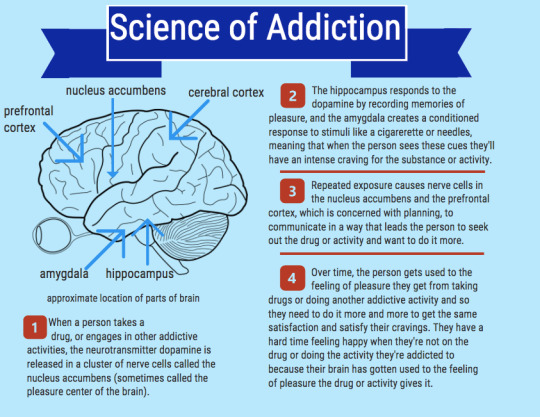
For more information follow this link to find the video and excerpts from the interview:
https://www.realclearpolitics.com/video/2017/12/11/fmr_facebook_exec_social_media_is_ripping_our_social_fabric_apart.html
0 notes












